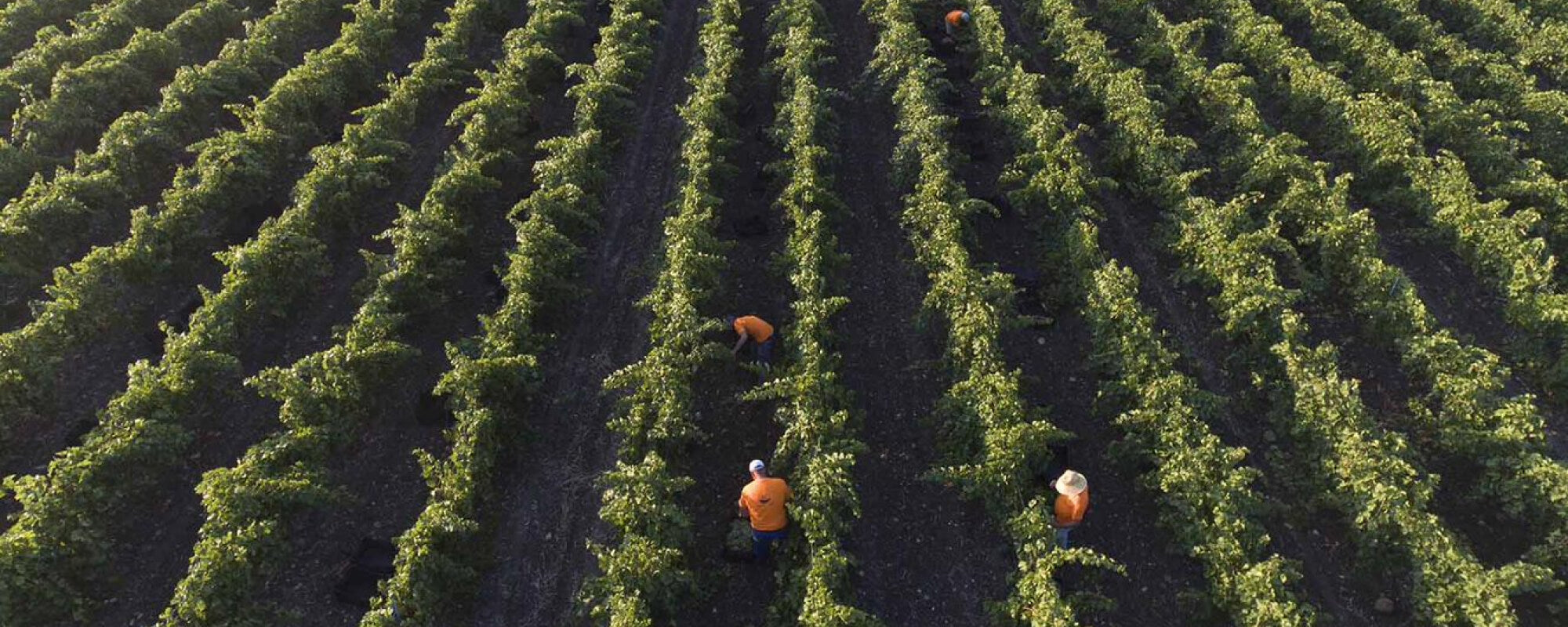

Ceppibianchi Zibibbo 2022

Ceppibianchi Zibibbo
Ceppibianchi Zibibbo

Fresh blood oranges with a spicy salty note.
The Zibibbo from Baglio Oro shines in light golden yellow with silvery reflections.
The nose reveals citrus aromas, blood oranges, the finest olive oils, herbs and spices. What defines the island of Sicily is combined in one bottle.
On the palate, the lemony freshness underlines the present acidity. Mineral-salty notes show that the wine was grown not far from the sea.
This aromatic grape variety may be better known to some as Muscat d'Alexandrie. The Phoenicians brought the grape from the African Cape Zibibb to southern Italy, which could explain the origin of the name.
Grandfather, father and three adult sons contribute with great passion to creating varietal, unpretentious wines.
Baglio Oro, the "ray of gold" in the Sicilian wine sky, so to speak, is a typical Italian family winery. Grandfather, father and three grown-up sons continue to contribute with great passion to producing varietal, unpretentious wines. The transition from tradition to modernity is of course being driven by the sons, but without underestimating the family traditions and the long wine-growing history of Sicily. The Mediterranean sun pumps its strength into the grapes here during the day, and the proximity to the sea brings a cool breeze at night. The highlight of Baglio Oro: grapes are grown on around 100 hectares, a very impressive area. However, 90% of the grapes are sold to large bottlers who process them further and make supermarket customers all over the world happy by the hectoliter. The best 10%, however, are kept for the wines of the winery itself.


Other wines from the winery
You might also like
Ceppibianchi Zibibbo
2022

Fresh blood oranges with a spicy salty note.
The Zibibbo from Baglio Oro shines in light golden yellow with silvery reflections.
The nose reveals citrus aromas, blood oranges, the finest olive oils, herbs and spices. What defines the island of Sicily is combined in one bottle.
On the palate, the lemony freshness underlines the present acidity. Mineral-salty notes show that the wine was grown not far from the sea.
This aromatic grape variety may be better known to some as Muscat d'Alexandrie. The Phoenicians brought the grape from the African Cape Zibibb to southern Italy, which could explain the origin of the name.




















